Gandaki University, established as the first provincial university, operates through the Board of Trustees. Unlike in Tribhuvan University, there is no provision for the Prime Minister or the Chief Minister to be the Chancellor of the University here.
Prof. Dr. Ganesh Man Gurung, who taught at Tribhuvan University for 25 years, is the Chancellor of Gandaki University.
He has executed various responsibilities like being a member of the Public Service Commission, Chairman of the University Grants Commission, and even a member of the Constituent Assembly.
Chancellor Gurung has admitted that Gandaki University has been successfully run by the Board of Trustees, a modality different from other universities.
His only vision is to make the university completely academic, free from political influence. Khabarhub had talked to Prof. Gurung during his visit to Kathmandu for the meeting of the Board of Trustees.
Here are the excerpts:
There are already many universities in Nepal. What is the rationale behind the establishment of Gandaki University?
At present, there are 12 universities in the country. Some are being added, soon there will be fourteen to fifteen. Some scholars are working hard on establishing more. In my opinion, the number has not been enough yet. The number of universities has not increased much, they still need to be opened.
The Constitution has given the right to open a university to each province. The Gandaki province made the first attempt in this regard.
The first reason to open it is to exercise the right the Constitution has given to each province. The next is the interest to link education with work and livelihood. We are not satisfied with the performance of the universities.
The Gandaki Province government enacted the Act with the vision of opening a university that helps in ending unemployment by generating employment. I am assigned the task of taking the vision to implementation. I am picked for the post of Chancellor for the same.
On what grounds will Gandaki University be different from others? How can it perform more effectively than others?
Firstly, the governance and the structure of Gandaki Province are different from other universities. All other universities in the country have the Prime Minister as their Chancellor. Ironically, the PM who is in the role of Chancellor has neither got the time nor in-depth knowledge of the activities of the University.
Gandaki University does not have a provision of making the Chief Minister of the Province as its Chancellor.
We are operating on the assumption that the responsibility of running the university should be given to academics.
Gandaki University has a Board of Trustees, also known as Nyasik Parishad in the Nepali language. The Gandaki Province government has given the responsibility of the University to the Nyasik Parishad. Only an academician can be the Chancellor.
In this regard, Gandaki University is different from other universities in Nepal. There is no possibility of political interference in such a structure.
I have heard about and seen that there is political interference in universities. There has been political interference in appointments, transfers, promotions, etc., but not here.
Secondly, Gandaki University seeks to link higher education with work and employment. There are no students in history and geography at Tribhuvan University.
Young people study investing time, money and energy however, when education does not ensure employment and livelihood, they turn into the unskilled manpower adaptable for the menial work in the golf countries. It’s ironic that the universities are producing such manpower. They should get employment after completing their studies.
Thirdly, the professors and staff of Gandaki University are not permanent. All are hired on a contract basis. Their performance is appraised periodically. Failure to perform well will result in dismissal from the post.
Gandaki University is different from other universities on these different grounds.
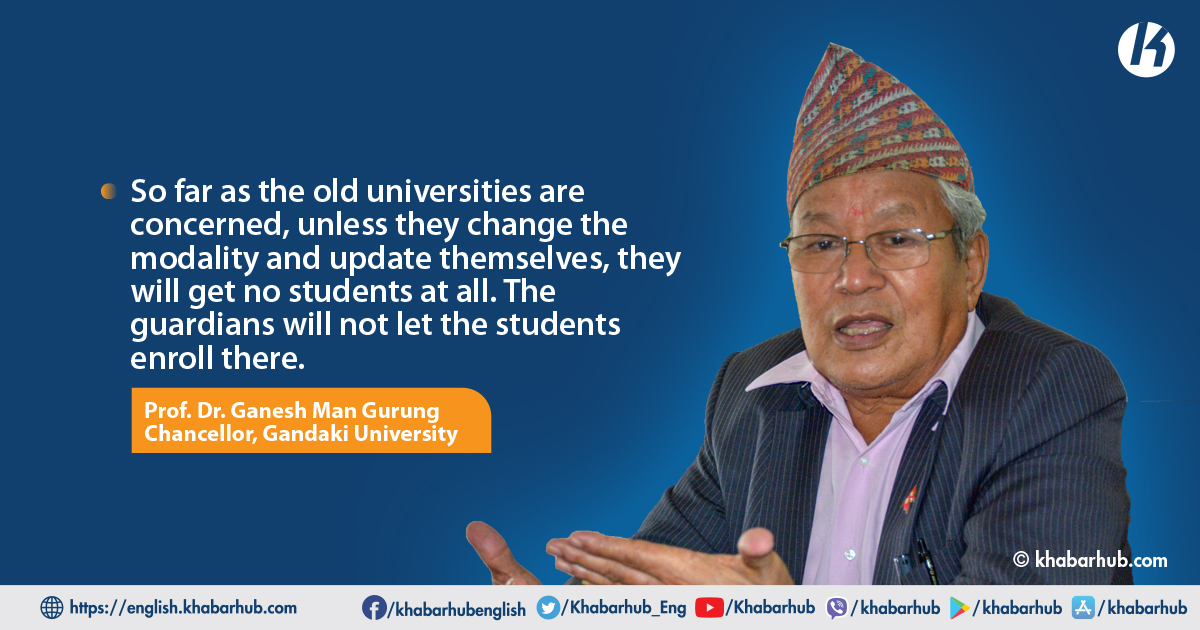
Although the Prime Minister and the Education Minister are given the high-sounding title of Chancellor or Pro-Chancellor, the titles are merely honorary. The executive there is the Vice-Chancellor. In this regard how can you say that is governed by the Board Trustees alone can make Gandaki University different from others?
Since the Prime Minister will be the Vice-Chancellor and the Minister of Education will be the Pro-Chancellor, there will be pressure from them while appointing Dean, Director, and many other officials. There is no place for such pressure at Gandaki University.
The law itself has warded off such pressure. There is a vacancy for a dean at Far-Western University. I heard that there are many people in the power center seeking favor for the post.
You have taught at Tribhuvan University for many years, you are a professor there. What are the main problems you saw while still at Tribhuvan University? Which problems are still prevalent there?
Talking about the chronic problems in TU, there are a few quite obvious to everyone:
Firstly, the academic calendar was/is never implemented at Tribhuvan University. It is a serious issue that the university is unable to enforce the calendar depicting the enrollment, class operation, and the date for the publication of the result.
Secondly, the best professors have deserted the University because they are not well-paid there. Later they work as the consultant of the World Bank, ADB, ICIMOD. When they go to other places for work, they are unlikely to perform their best in education.
Last but not the least, the university is a shrine of knowledge. It should not be allowed to be a playfield for politics.
There should be no sister organizations in the university.
There are frequent lockouts, sit-ins, vandalism, strikes, etc. in our universities. Why does this happen, what does your experience say?
There are distortions and anomalies in the sister organizations of political parties. University students and staff have such organizations. They have contacts with political parties.
Student organizations should have raised the issues related to the students. They should have talked about common problems like the toilets were not good, the library does not have enough books, curriculums have to update, etc.
In other words, the organizations should have raised the issues related to education.
Unfortunately, they show their interest in recruitment and transfer of the office-bearers. There are many such demands. This is a perversion. Students’ demands are politicized and there are many who lock up and prevent the sincere students from studying.
Professors also have political party-affiliated organizations, what is the comment about this!
There should be only one organization of professors. We need an organization that can contribute to the welfare and progress of the university, for the benefit of the professors!
Unfortunately, the professors seem like the cadres of political parties: some advocate for Nepali Congress, others to CPN-UML, CPN- Maoist Centers, and so on. University should not be a playfield for politicians and politics.
Those who want to do politics should resign from university and contest the election. Then they can take any posts like Central Committee member (CCM), Polit Bureau member (PBM), or others.
It is unfortunate that there are political party flags sheltering the professors.
A small query, what is employment?
Employment is getting paid for the work, after completing the study the product should be capable of generating employment or getting employed.
For example, The reason why a sociology student gets a job is that the Public Service Commission has fixed the posts of sociologist.
There are vacancies in the ministries and various other offices for such posts. However, there are hardly any posts for the post of an anthropologist. If the production does not match with the market, there will be unemployment.
I am not clear about what employment actually means. If being employed means getting involved in some work from 10 am to 5 pm and getting paid for that; I don’t think that providing such works to the university graduates is not possible. That means, the universities into the factories adding the number of unemployed in the country. It has been alleged that our universities enhance unemployment, not self-reliance. What do you say to that?
Perhaps, my previous answer was incomplete. Now we have to look at it in a new way. Now education should be linked with entrepreneurship.
The subject that the student is studying should be linked to the business after completion of the study. We are working to prepare such a course.
After completing the study, the student should be able to start doing something on their own. Be it agriculture or any other sector, education should enhance self-reliance.
With this in mind, taking advice from Mahabir Pun, we have set up the Gandaki Innovation Center. This center is under the university itself.
Scholars often regret that the research bodies of Tribhuvan University, CNAS, CEDA, etc., are neglected, inactive and have not been able to carry out research works. How can you ensure that Gandaki University will not let Gandaki Innovation Center face a similar fate?
The research centers at Tribhuvan University are lying paralyzed due to political influence. People close to the political party were given leadership.
When Dor Bahadur Bista was in the leadership there, Japan gave the centers logistic support including the vehicles needed for the project and gave some research projects.
When Khadga Bikram Shah was in the leadership, the centers were the places for scholarly debate. Scholars would brainstorm on various issues of great importance.
Had a capable and qualified person been given leadership in such investigative bodies, the research centers would not have been in such pathetic condition.
What was the Center for Economic Development and Administration (CEDA) when Pashupati Shumsher Rana and Ratna Shumsher Rana were in the Center! CEDA was a center of attraction. Everyone’s attention was on it.
After the budget speech, the finance minister would go to the Center for Nepal and Asian Studies (CNAS) and deliver a speech. Not so now, CNAS has no charm these days. CNAS has not been able to tempt scholars and the scholarly debate.
The question you raised about the Gandaki Innovation Center is really worth considering. All those working in the center are under contract; their performance is subject to periodical and annual evaluation. Those who cannot perform well have to resign or vacate the position. However, this cannot be done at Tribhuvan University. All are permanent, they go to court.

There are arguments that Tribhuvan University should also be run by the Board of Trustees. Universities are said to be autonomous bodies, what do you say about that?
They are autonomous only in name. University officials are directly or indirectly under pressure. It is a matter of influencing the officials. The Prime Minister does not have time to look after the work of the university.
I am of the opinion that there is no better model than the Board of Trustees. Gandaki University is different from others in this sense.
Is it possible to take other universities to the Board of Trustees model? What are your suggestions as a Chancellor of a university?
If Gandaki University performs well, it will be a model. And as time goes on, other universities will also be under pressure.
Now Province One, Lumbini Province, and the Sudur Paschim Province have also shown interest in establishing provincial universities; they have shown interest in Gandaki University Act.
So far as the old universities are concerned, unless they change the modality and update themselves, they will get no students at all. The guardians will not let the students enroll there.
Gandaki University has come as a test. If it makes good progress, it will automatically put pressure on other universities to change the current system. It should be run entirely by academics, not political figures.
We are aware of the fact that Gandaki University has to perform its best.
What are the aspects that need to be fundamentally reformed in our higher education system?
Unfortunately, the Federal Education Act has not yet come into force. I tried a lot when I was the chairman of the University Research Commission, and I am still trying.
So far as the reforms are concerned, first of all, we must dare to change the prevalent provisions of making the Prime Minister Chancellor of the university; the universities should be governed by the Board of Trustees. The academics should dare to do this.
Next, even before drastic changes are made in the organizational structure, every university should stick to its academic calendar; everything should be done on time.
Third, the university is a temple of knowledge; this temple should not be a bag of politics. Students and professors in universities should not form fraternal organizations or political parties. Political parties should cooperate in this if they are really committed to improving the education system in the country.
Provided these things are considered seriously, there can be a substantive improvement in the education sector.
Does this mean that universities do not need any organization of students and professors?
If the student organization is to be allowed in the university, the organization should comprise of representatives on a merit basis; whoever gets the highest number in the entrance tests, the person should be eligible to join and lead such organizations. I saw this system in Norway.
Such an organization looks after the toilets, whether there is drinking water, whether there are necessary books in the library, whether the teacher has taught well. The (Norwegian) organization is also looking for a job for its college students. This is the case at the University of Oslo.
There should be the monitoring of the researches carried out by the professors. Professors who do not teach well and do not do research should be dismissed. This is how Gandaki University operates.
Gandaki University is just building academic structures, curricula. Tomorrow there will be students, there will be teachers, and there will be organic campuses. At that time, will Gandaki University allow organizations?
We don’t allow teachers to be organized, not even the staff. As for the student, it is like the ‘Student Welfare Council’. It consists of students who do well in exams. The focus of such an organization is only on education, not on politics. We make monitors in the classroom.
We discuss this with them. Discussions are held on the things needed to make reading better. They raise the issues related to the facilities of the students, ways of making teaching-learning more conducive.
How much do you think the country has used the expertise of professors and highly educated people in economic, social, political, technical and other fields?
So far no Prime Minister has had discussions with such dignitaries. They have not been consulted on any issue. It is not customary for the Prime Minister and the Minister to call the professors and scholars of the country for a discussion.
There are economists, geographers, sociologists in many fields but the government has ignored all of them. The state has not been able to benefit from them. There is no focus on this.
The head of state and the head of government have nothing to do with professors and experts, they are far away.
Our Tribhuvan University is one of the largest universities in the world. There are other universities as well. How do you see the situation of Nepal compared to the best universities in the world?
Once I saw Tribhuvan University was within a thousand. I have not seen the updates of late. Overall condition of Tribhuvan University is not good but some campuses are good. The Engineering Campus, Pulchowk is really good. Many foreigners also come here. The Tribhuvan University Teaching Hospital (TUTH), Maharajgunj is also excellent.
Both of these campuses are worth a high rating globally. Most other institutions in the country are lagging behind.
Gandaki University is supported by Gandaki Province. The office is in Pokhara. The Board of Trustees has organized a meeting in Kathmandu. Does not it hint at the dependency on Kathmandu? What do you mean?
It’s very simple. Many friends are in Kathmandu. Many people have to go to Pokhara for meetings. Former Vice-Chancellor of Kathmandu University Prof. Suresh Raj Sharma is also on the board. He is a senior citizen. It was not possible for him to go to Pokhara. I can’t leave him. Considering his condition, we have held a meeting in Kathmandu.
Many friends from Kathmandu go to Pokhara and it costs a lot. There are few who come from Pokhara. This will save you money. There has been talking about holding a zoom meeting, but we have decided to do it face to face in Kathmandu. The previous meeting was held in Pokhara.
You said that Gandaki University is far from political influence, no one is appointed under political influence, but you were a member of the Constituent Assembly of the CPN-UML in the past, a member of the Legislature-Parliament once. How can you assure that the university is free from political influence?
I don’t stick to any politics. I will not take any pressure; I will not do what you say. There are many friends close to the Nepali Congress, UML and CPN-Maoist Center on the board of trustees. However, they never talk about party politics in the meeting or in the gatherings. As a team, we are committed to upgrading the status of the university.
I was also in the Public Service Commission. I did not do anything on political grounds; there was no comment about me. Even when I was in the Constituent Assembly, many members of all parties looked at me as a teacher and took the advice.
During the Constituent Assembly, the State Restructuring Commission was formed under your chairmanship. That commission was not effective. Why didn’t that particular commission work?
The UML leaders asked me to become the Chairman of the State Restructuring Commission. In fact, Bharat Mohan Adhikari had told me this. Ishwor Pokharel also urged me to take a lead. My name was announced as the Chairperson.
The next day the television reached my house. They started questioning me about how I would restructure the state. I answered bluntly: it’s easy for me. I am a student of sociology. From Satar in Jhapa to Rana Tharu in Kanchanpur, Bhote in Humla and Sherpa in Taplejung, I know how to reconcile all other castes and Chhetri Brahmins. It is not too difficult for me.
They further stated that state restructuring is considered very difficult, and I had taken it too easily. I said that North-South, Himalayas, Hills and Terai are all brothers. Everyone, whatever their ethnicity or the caste may be, has to live in harmony with each other. If there is an ethnic state, there will be fights.
The next day the Minister called for an appointment letter. Interestingly, while giving me the appointment letter he said, “Although we appointed you, sir, you might not be allowed to work as per your vision as yours contradicts with ours.”
We waited a long time but were not allowed to work independently. That’s how the time passed without any work at all.


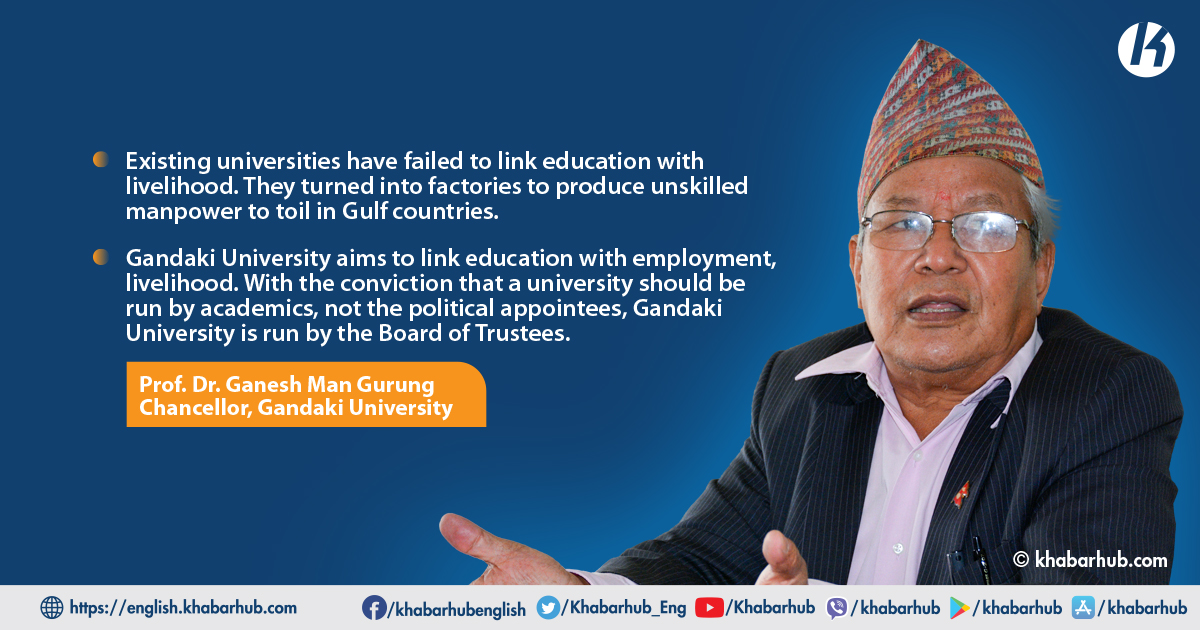
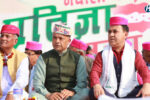
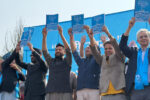
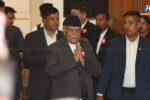
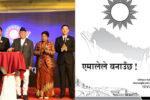

Comment